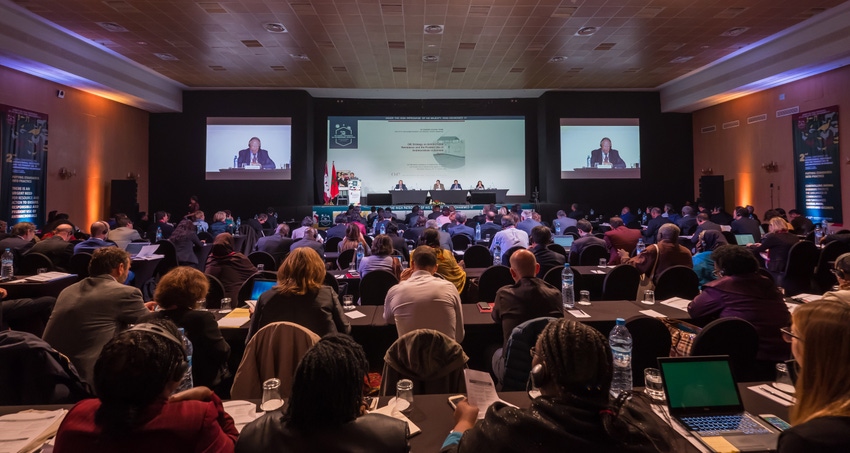OIE sets international AMR recommendations
Global ministers agree on international action to address antimicrobial resistance in animals and to safeguard medicines for humans and animals alike.
November 1, 2018

At the three-day Second Global Conference on Antimicrobial Resistance & Prudent Use of Antimicrobial Agents in Animals, hosted by the World Organization for Animal Health (OIE) in Morocco, global leaders in animal health discussed new ideas and solutions to the global rise of antimicrobial resistance (AMR).
Prevention of AMR in farming is critical to human health as well as to food safety, food security, animal health and animal welfare, OIE said following the conference. Antimicrobials are used around the world to control and treat infections in animals and people, but their overuse and misuse puts their efficacy at risk. Unprecedented movements of people, animals, goods and food worldwide enable resistant pathogens to populate the planet with ease, the international agency said.
The conference was attended by more than 500 participants, including representatives of OIE’s 182 member countries, international partners such as the U.N. Food & Agriculture Organization, the World Health Organization (WHO), World Bank and the U.N. Interagency Coordination Group on AMR, as well as representatives from the meat, dairy, poultry, egg, aquaculture and pharmaceutical industries, civil society and academia.
A prominent theme of the discussions was the need for cross-sector, national-level coordination through national action plans to prevent the development and spread of AMR, OIE said.
“It is only by promoting the responsible and prudent use of antimicrobials that their efficacy can be safeguarded, ensuring that essential medicines that protect both human and animal health can continue to be used,” OIE director general Dr. Monique Eloit said. “We have made important progress in this mission today. International standards on prudent use already exist. We now need to put them into practice at national level to tackle AMR. For this, international collaboration is essential. By working together, countries can discuss challenges, share best practice and make global improvements.”
Via video message at the start of the conference, WHO director-general Dr. Tedros Adhanom Ghebreyesus said AMR "represents a major global health threat and it is not a challenge for the health sector alone. ... Together, we can support countries in their work to stem the tide of antimicrobial resistance.”
Many of the ministers touched on their own national programs to minimize AMR in animals and how international standards and leadership helped in their development.
Another challenge related to the AMR debate is fake and low-quality antimicrobials in animal use. Aminata Mbengue Ndiaye, minister of livestock and animal production in Senegal, said, “The cross-border movement of counterfeit or low-quality veterinary medicines is a limiting factor in the fight against antimicrobial resistance. The financial value of the parallel market for veterinary drugs is estimated as being 30% of the value of controlled imports.”
OIE said a series of "bold recommendations" were released at the end of the meeting, including an urgent call for new research into priority vaccines and other alternatives to antimicrobials, phasing out the use of antibiotics as growth promoters and ensuring that qualified veterinarians, veterinary paraprofessionals and farmers work closely to ensure the prudent and responsible use of key drugs.
Juergen Voegele, World Bank Group senior director, Agriculture Global Practice, said, “AMR is not a technical issue. It is a people issue, an animal issue, an environment issue. We need to look at everything we do in sustainable development through the lens of AMR -- look at how every program and decision might impact AMR and be impacted by AMR. This doesn't necessarily require extra money. It is essentially about asking the right question at the point when decisions are being taken.”
You May Also Like


.png?width=300&auto=webp&quality=80&disable=upscale)
